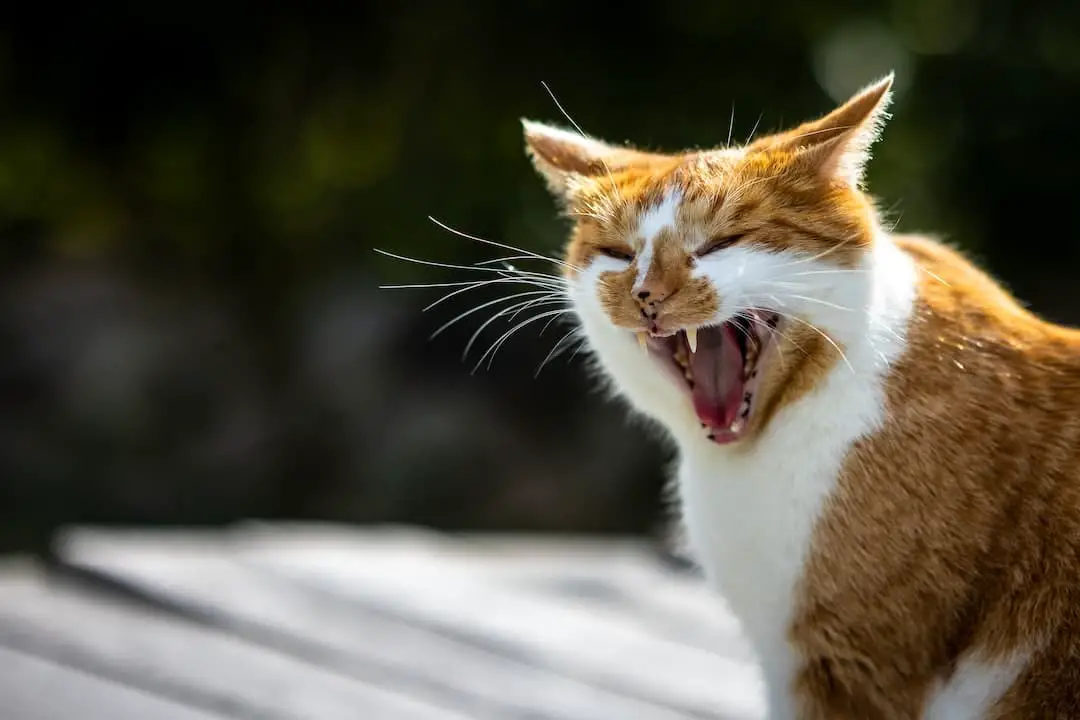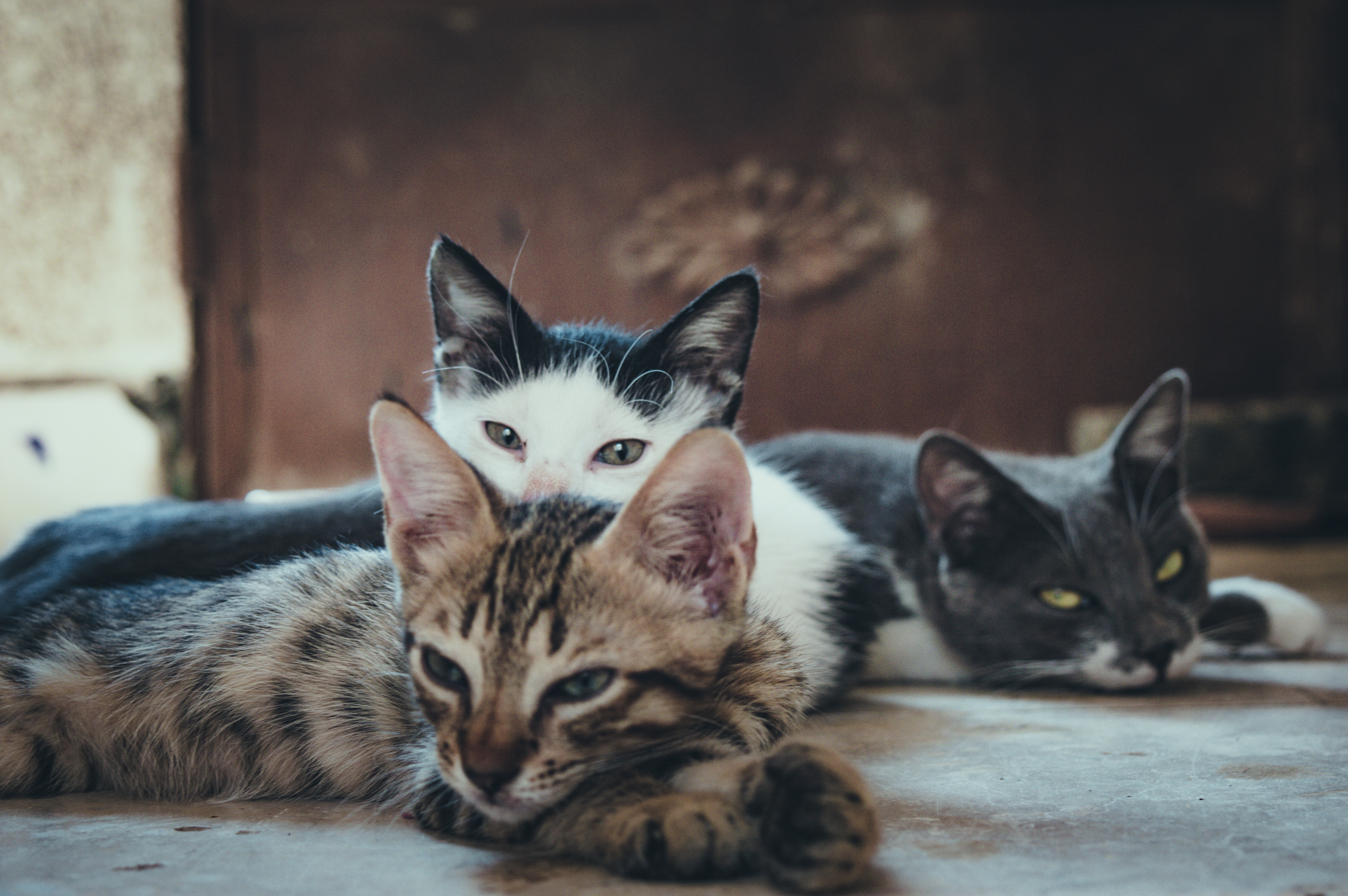Table of Contents
Cats hissing is a common behavior that can be both concerning and alarming for pet owners. But understanding the reasons behind why cats hiss, how to respond when it occurs, and preventative measures you can take are all key components of being an effective pet owner.
In this blog post we will explore what causes cats to start hissing, as well as helpful tips on how to respond appropriately in order to keep your cat safe and happy. We’ll also discuss when it’s important enough to seek professional help from a veterinarian or animal behaviorist before the situation escalates further.
Cats hissing may not always be easy but with these tools at your disposal, you’ll have the knowledge needed so that no matter what happens you’re prepared!
Table of Contents:
- What is Hissing?
- How to Respond to a Cat’s Hissing?
- How to Prevent Cats from Hissing?
- When to Seek Professional Help?
- FAQs in Relation to Cats Hissing
- Conclusion
What is Hissing?
Hissing is a sound cats make when they feel threatened or are in an uncomfortable situation. It is usually accompanied by the cat’s fur standing on end and their tail flicking back and forth. Hissing can be seen as a warning sign that the cat may attack if it feels cornered or provoked further.
Definition of Hissing
Hissing is a loud, hissing sound made by cats when they are feeling scared, threatened, or angry. The sound itself is similar to that of air being released from a balloon and can often be heard from several feet away. This noise serves as an alert for other animals in the area that the cat does not want to be disturbed any further.
Reasons Why Cats Hiss
Cats will hiss for many reasons including fear, aggression, territoriality, pain, illness or stress. When faced with unfamiliar people or animals cats may become defensive and use hissing as a way to protect themselves from potential danger.
They may also hiss if another animal gets too close to their food bowl or litter box which could indicate territorial behavior. Additionally, cats who are ill or injured may exhibit signs of discomfort such as vocalizing through hissing due to pain associated with movement or touch sensitivity caused by inflammation in certain areas of their body.
Lastly, some cats will display signs of anxiety through excessive meowing and/or vocalization like hissing when placed in stressful situations such as trips to the vet office where they have had negative experiences before..
Common Misconceptions About Hissing
It is important to note that while most people associate this behavior with aggression, there are actually different levels of intensity behind each individual’s response depending on how comfortable they feel around you at any given moment.
Therefore, it should not be taken personally. Additionally, some owners mistakenly believe that all forms of vocalization (including purring) mean happiness; however, this is not always true either – sometimes your pet just needs space.
How to Respond to a Cat’s Hissing?
When a cat hisses, it’s important to remain calm and assess the situation. It is likely that your cat is feeling threatened or scared in some way. To prevent further escalation of the situation, move away slowly and avoid direct eye contact with your cat.
This will help show them that you are not a threat and they can relax. If possible, provide an escape route for your cat so they can remove themselves from the stressful environment if needed.
It’s also important to understand why cats may be hissing in order to prevent future incidents from occurring.
Common reasons include fear or anxiety due to unfamiliar people or animals entering their space, being startled by loud noises or sudden movements, feeling threatened by another animal or person in their home, feeling uncomfortable during petting sessions, and pain due to illness or injury.
By understanding what triggers these behaviors you can take steps to reduce stressors for your pet which should result in fewer instances of hissing over time.
In addition to understanding why cats may be hissing it’s also important to establish boundaries and rules for them within the home as well as create a stress-free environment where they feel safe and secure at all times.
Providing regular mental stimulation through interactive playtime with toys can also help keep them mentally stimulated while reducing boredom which could lead to unwanted behaviors such as excessive meowing or scratching furniture/carpets etc..
If despite taking these steps you find yourself unable to manage the behavior on your own, then it might be best to seek professional help from a veterinarian who specializes in feline behavior issues before things get out of hand.
How to Prevent Cats from Hissing?
Cats are naturally territorial animals, and hissing is one of the ways they express their displeasure or discomfort. Establishing boundaries and rules for your cat can help prevent them from hissing.
Make sure to clearly communicate what behaviors you expect from your cat and be consistent in enforcing those expectations. This will help create a sense of security for your pet, which can reduce stress-related hissing behavior.
Creating a stress-free environment for your cat is also important when it comes to preventing hissing. Provide plenty of hiding places throughout the house so that cats have somewhere safe to retreat if they feel threatened or overwhelmed by their surroundings.
Additionally, try to limit loud noises and other potential sources of anxiety such as unfamiliar people or pets in the home.
Finally, providing regular mental stimulation for your cat can also help prevent unwanted hissing behavior. Cats need daily enrichment activities like puzzle feeders or interactive toys that challenge them mentally while encouraging natural hunting instincts and behaviors such as stalking, pouncing, and chasing.
These activities provide an outlet for pent up energy which can otherwise manifest itself as aggression through vocalizations like hissing or growling at perceived threats.
When to Seek Professional Help?
When it comes to pet behavior, sometimes professional help is necessary. If your cat’s hissing has become persistent or intensely aggressive, it may be time to seek the advice of a professional.
A veterinarian or certified animal behaviorist can provide insight into why your cat is exhibiting this type of behavior and offer guidance on how to manage it.
If you are unable to identify the cause of your cat’s hissing, a professional can help determine what might be causing the issue and suggest possible solutions.
For example, if you have recently adopted a new pet that could be causing stress for your existing cats, an animal behaviorist can advise on ways to introduce them in order to reduce tension between them.
FAQs in Relation to Cats Hissing
What does it mean when cats hiss at you?
Hissing is a sign of aggression in cats. It usually occurs when they feel threatened or scared, and it can be directed at both humans and other animals. Cats may also hiss if they are feeling territorial or protective of their space.
Hissing is the cat’s way of telling you to back off and give them some space. If your cat is hissing at you, try to identify what might be causing them distress so that you can address the issue appropriately.
What to do if a cat hisses at you?
If a cat hisses at you, it is important to remain calm and not react in an aggressive manner. Cats may hiss when they feel threatened or scared. It is best to give the cat some space and avoid making any sudden movements or loud noises that could further agitate them.
If possible, try speaking softly to the cat in a reassuring tone while slowly moving away from them until they are no longer feeling threatened. Once the cat has calmed down, you can then approach them again with caution and offer treats as a way of building trust between you both.
How do you calm a hissing cat?
Calming a hissing cat can be done in several ways. Firstly, it is important to identify the source of the stress or fear that is causing your cat to hiss. If possible, remove this trigger from the environment and provide your cat with a safe space away from any potential threats.
Secondly, try distracting your cat by offering treats or toys they enjoy playing with. Finally, if all else fails, use gentle strokes on their head and neck area as this will help them relax and feel secure again. Remember to remain calm yourself during these moments as cats are sensitive to human emotions too.
Should you let your cat hiss?
No, you should not let your cat hiss. Hissing is a sign of aggression and can be a warning to other animals or people that the cat feels threatened. It can also be an indication of pain or discomfort in cats, so it’s important to observe your pet closely when they are hissing and take appropriate action if necessary.
If you notice your cat hissing frequently, it may be time to visit the vet for a check-up or discuss possible causes with them.
Conclusion
It is important to understand why cats hiss and how to respond appropriately when they do. By taking the time to learn about cat behavior, you can help ensure that your cats remain happy and healthy.
If your cats are exhibiting more aggressive behavior than usual or if their hissing has become excessive, it may be best to seek professional help from a veterinarian or animal behaviorist.
With the right knowledge and care, you can keep your cats safe and comfortable while reducing the amount of times they hiss at each other.

